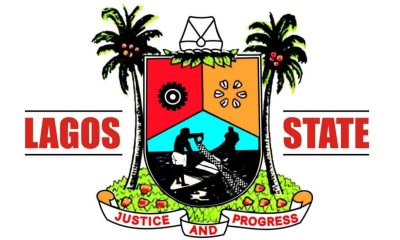Nigeria News
Lagos Govt Returns To Supreme Court Over Magodo Estate Tussle

The Lagos State Government has approached the Supreme Court to get clarification on the initial ruling on the occupation of Magodo Estate.
On February 10, 2012, the apex court had in a ruling ordered the Lagos government to compensate some landlords with 549 plots of land after their properties were demolished at Shangisha.
After years of disobeying the judgement, Shangisha landlords approached the Federal government for the enforcement of the apex court decision.
In December 2021, the Federal government accused the Lagos government of delaying the enforcement of the judgment and sent a team of officers to escort bulldozers to the estate.
However, residents of the area protested the move, and the police withdrew from the estate after the state government intervened.
On January 4, 2022, there was another protest at the estate over a renewed threat of demolition and police invasion, after which Governor Babajide Sanwo-Olu visited the area and promised that the issue would be resolved amicably.
On January 5, the state announced that it had reached an agreement with the judgment creditors (Shangisha landlords) on a settlement plan.
In a statement on Friday by the state Commissioner for Information, Gbenga Omotoso said the Shangisha landlords failed to reach an agreement on the settlement plan.
Omotosho disclosed that the landlords failed to reach an agreement on how the Certificates of Occupancy would be distributed.
He said that the failure to agree on the settlement plan led the state government to approach the apex court for guidance and clarification, adding that they have been served with the application.
The statement reads: “Following the intervention of Lagos State Governor, Babajide Sanwo-Olu, officials of the State Government and representatives of the Shangisha Landlords Association (the judgment creditors) held a series of meetings at which both parties explored the possibility of complying with the judgment of the Supreme Court.
“At the said meetings two issues arose: There was a serious division among the judgment creditors as to who controlled or had the right to represent the Association; and the demand by the judgment creditors that a single global certificate of occupancy should be issued in the name of the Association as opposed to the position of the State Government that each of the 549 members of the Association would be given allotment letters individually.
“Given the sharp divide between the two factions of the judgment creditors on who has authority to represent the Association and the disagreement regarding whom the certificate of occupancy should be issued (collectively or individually), the State Government has approached the Supreme Court to seek further directives and clarifications on both issues. The judgment creditors have been served with the application.
“The State Government, however, wishes to reiterate its commitment to complying with the judgment of the Supreme Court once these two issues are resolved.”










